Graduate College
Sustainable Dog Park
Muscatine was interested in developing its first dog park as a community amenity. Students surveyed best practices for dog parks in communities similar to Muscatine and identified recommended amenities, including water, water features, ground covering, benches, pavilions, fencing, walking paths, waste control, among others. Students created preliminary designs for the dog park, including potential planned phases where restrooms and water features would be included at a later time.
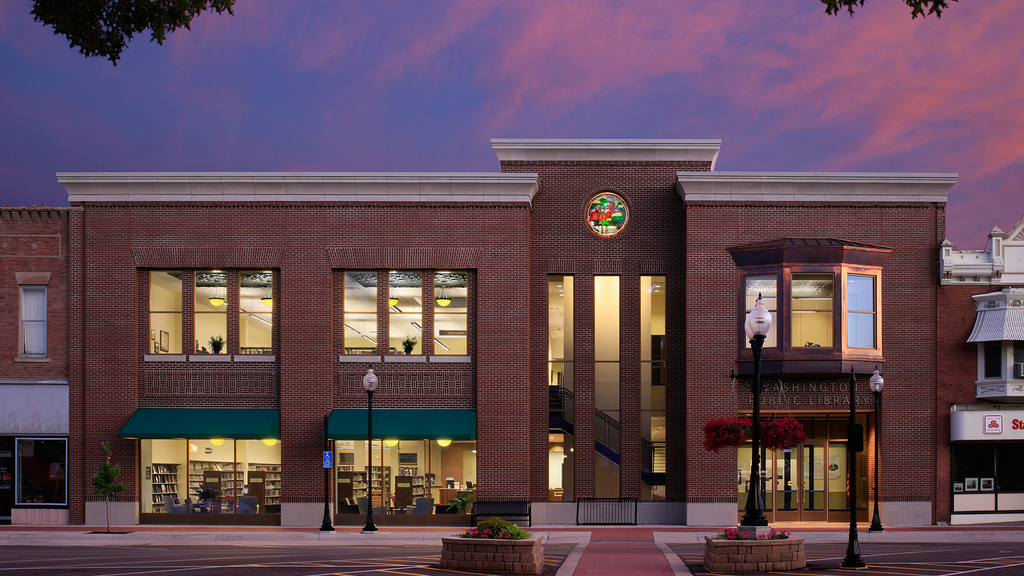
Enhancing Children's Resources as the Washington Free Public Library
Graduate students in the School of Library and Information Science worked with the Washington Free Public Library to address goals related to the library’s long-term plan, particularly in relation to the Children’s Area. Projects included evaluating the potential for creation of a parenting collection, reclassification of the Children’s Area, and rearranging the Children’s Area to create a welcoming environment.
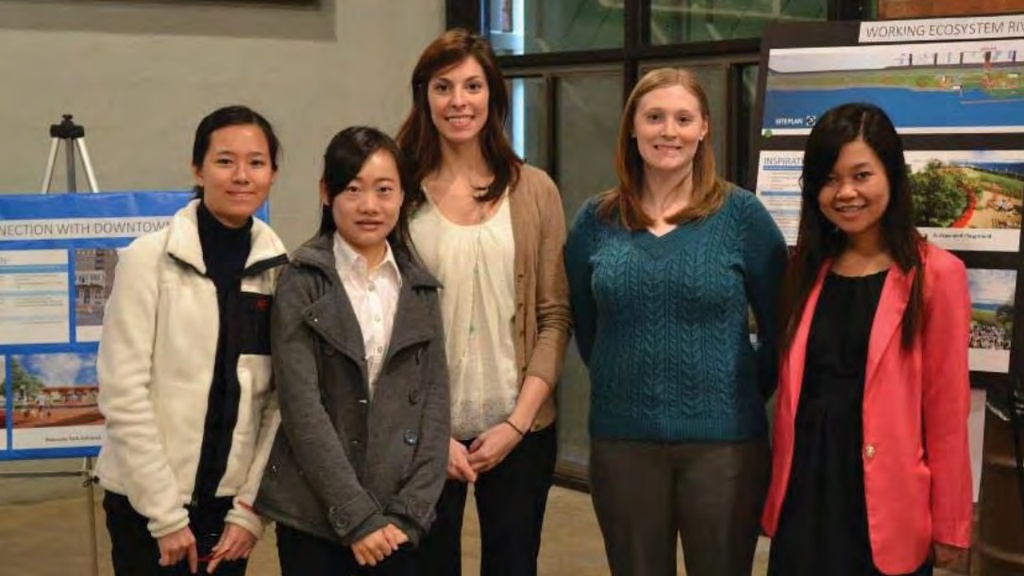
Mississippi Riverfront Redevelopment Plan
Students surveyed best practices of community riverfront redevelopment efforts similar to what was being looked at for the redevelopment of the section of the Mississippi River in Muscatine. The students solicited community input to identify the best uses for the land, ultimately producing a plan for the riverfront.
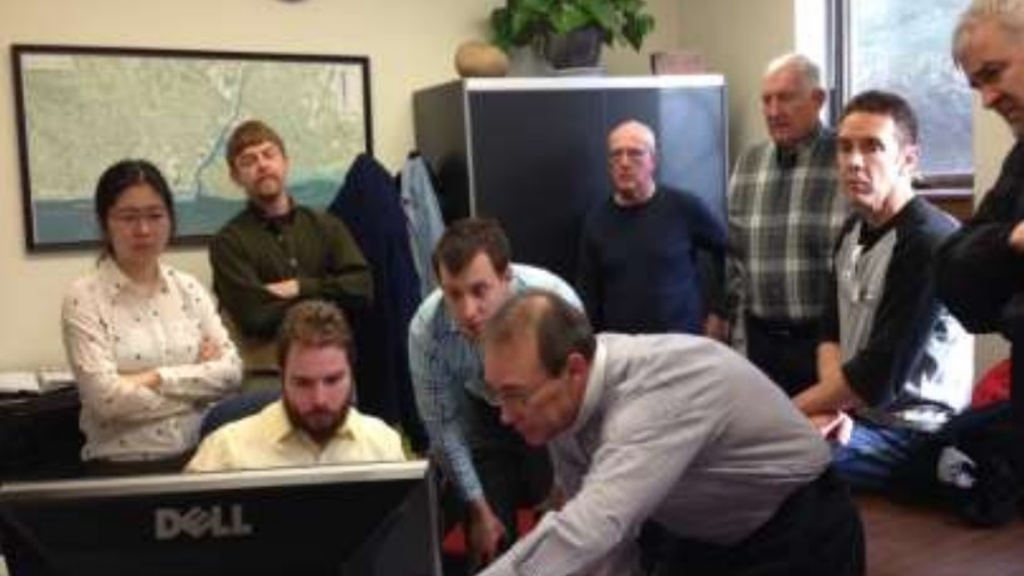
Connectivity Master Plan and Wayfinding
Students in the School of Urban and Regional Planning developed a connectivity master plan for Muscatine that evaluated current infrastructure and created a plan for better connectivity between walking and biking trails, sidewalks, streets, bus routes and major points of interest.
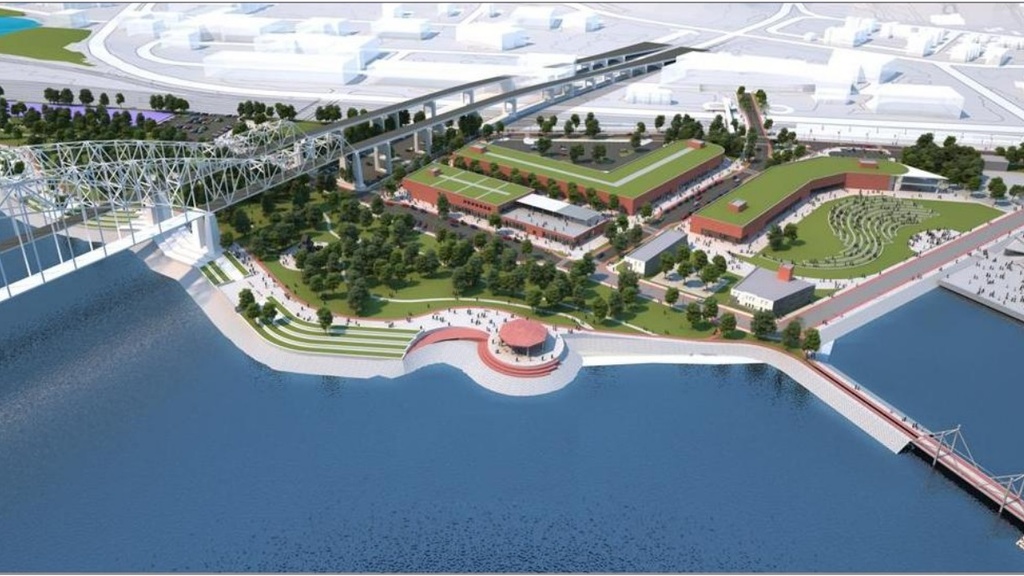
Reimagining the South Port of Dubuque
Students developed four design alternatives for the South Port in that were in line with the sustainable vision of Dubuque and based upon significant community input.
Following the redevelopment of the North Port, city officials in Dubuque wanted to identify improvements for the South Port, which is comprised of 33 acres of semi-industrial land.
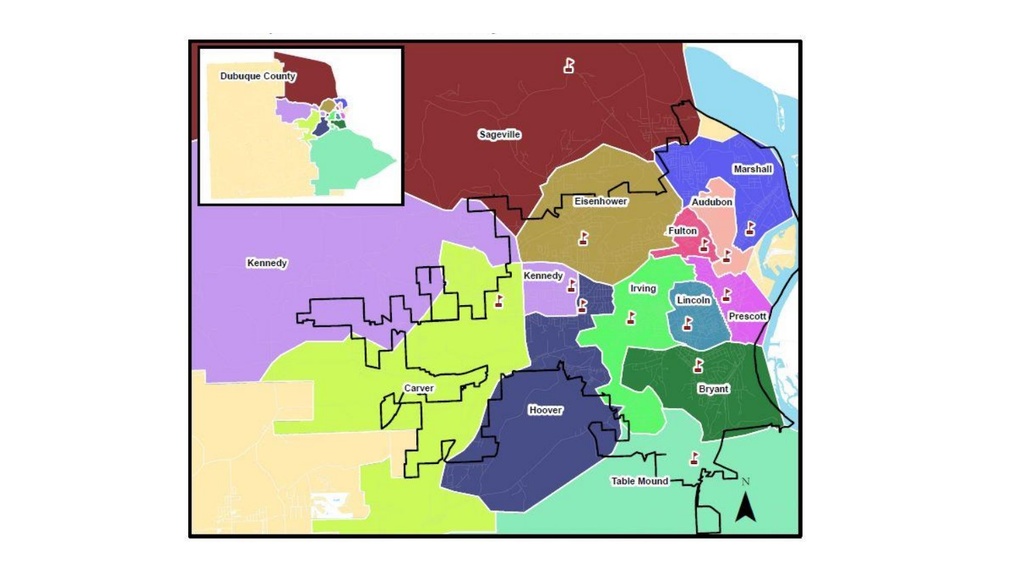
Dubuque Schools, Neighborhoods, and Student Outcomes
Students in the School of Planning and Public Affairs partnered with the City of Dubuque and the Dubuque Community School District (DCSD) to study the relationship between housing policy, neighborhoods, and elementary school student achievement.
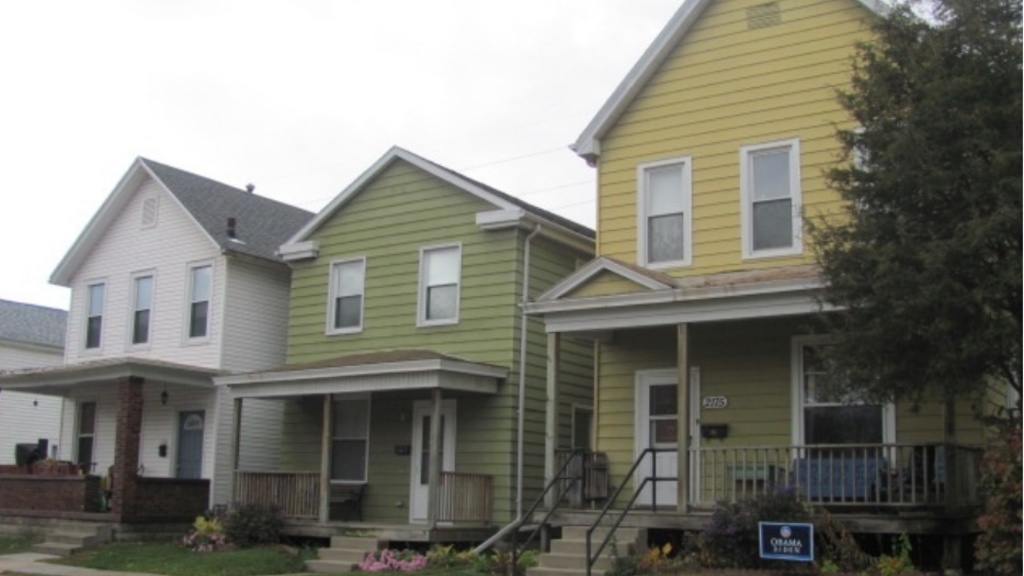
Housing for a Vibrant Dubuque
Students studied factors that affect a household's locational choice and developed seven recommendations for the City of Dubuque to fulfill its vision of creating a choice of livable neighborhoods and opportunities would attract and retain households, especially young professionals and families.
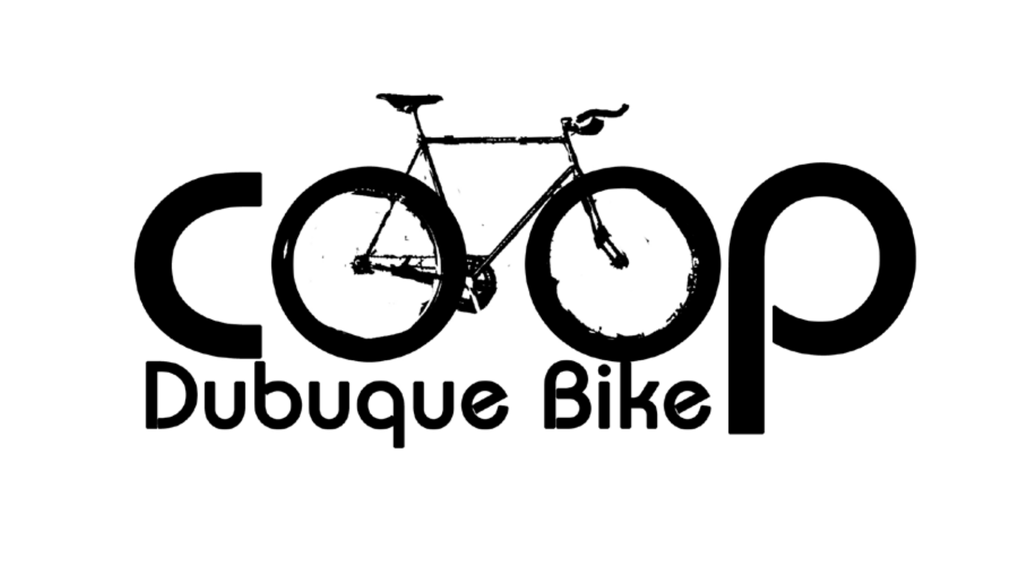
Increasing Mobility in Dubuque: Developing Alternate Mode-Sharing Opportunities
Students addressed the affordability of transportation by examining opportunities such as car-sharing and bike-sharing in The City of Dubuque. Students analyzed the accessibility of the current transportation system; solicited feedback from focus groups comprised of likely end-users; and synthesized demographic data to access locational feasibility.
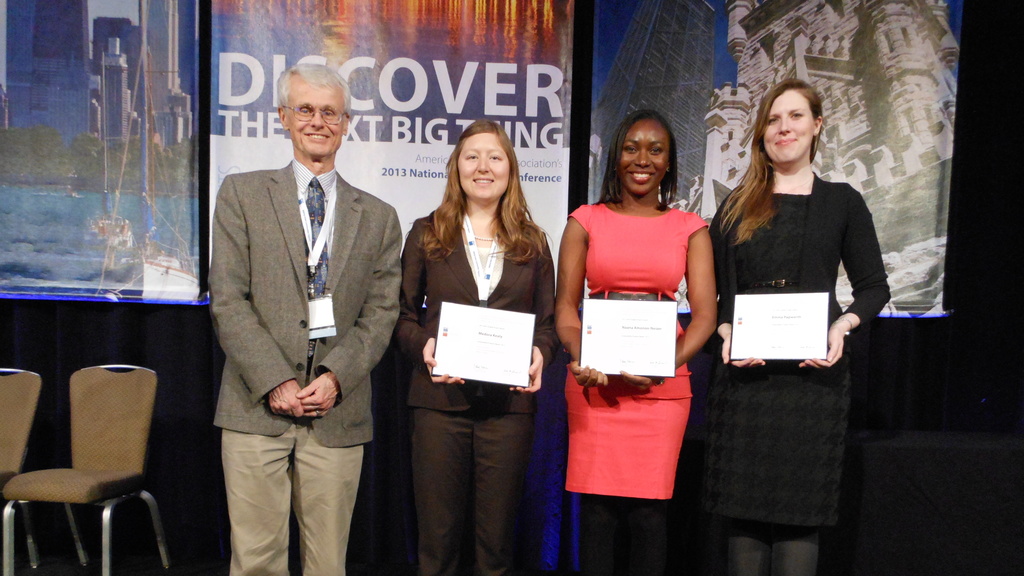
Dubuque County Sustainability Indicators
In 2011, Dubuque Regional Smart Planning Consortium was formed and tasked with developing a regional sustainability plan. Building on the 2011-12's Indicator and Indicator Measures for 11 Sustainability Principles for the City of Dubuque, students created measurements for the sustainability goals outlined in the Smart Plan on a regional scale.
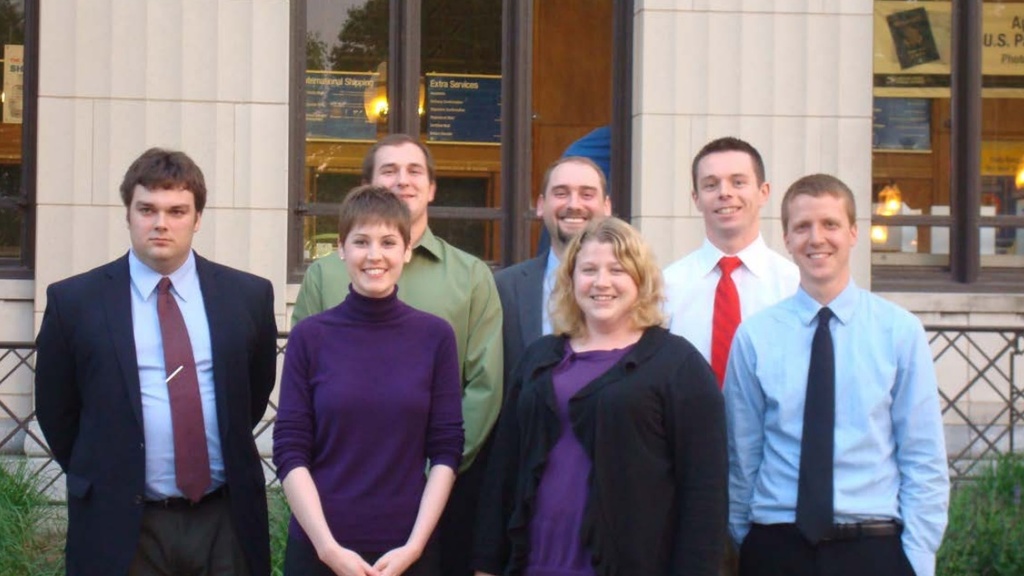
Local Foods Action Plan
Dubuque city leaders wanted to increase the production and consumption of local foods as part of their Sustainability Dubuque initiative. In addition to common direct-to-consumer approaches, such as community supported agriculture programs and community gardens, Dubuque city leaders wanted to expand to a higher impact approach by expanding the market for local food producers to sell their products to large institutions.
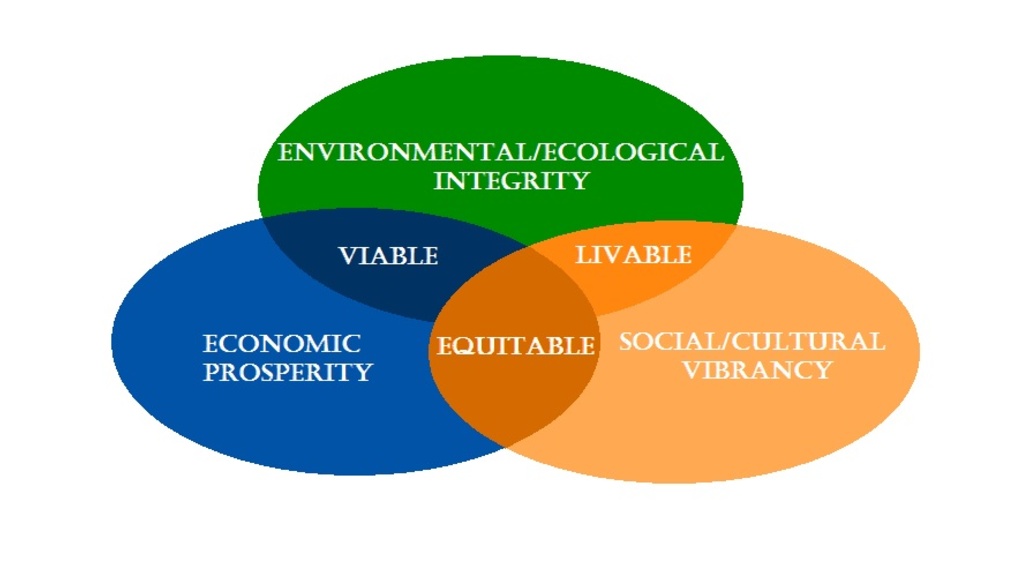
Portrait of Poverty in Dubuque
Students researched who is in poverty and where they lived in Dubuque, IA; identified barriers to getting out of poverty; and developed recommendations for best practices in anti-poverty initiatives.
One of the cornerstones of sustainability is social/cultural vibrancy. After the City of Dubuque adopted its Sustainable Dubuque plan, city leaders wanted to explore poverty so sustainable initiatives could be provided that addressed the needs of the poor in an informed and efficient manner.
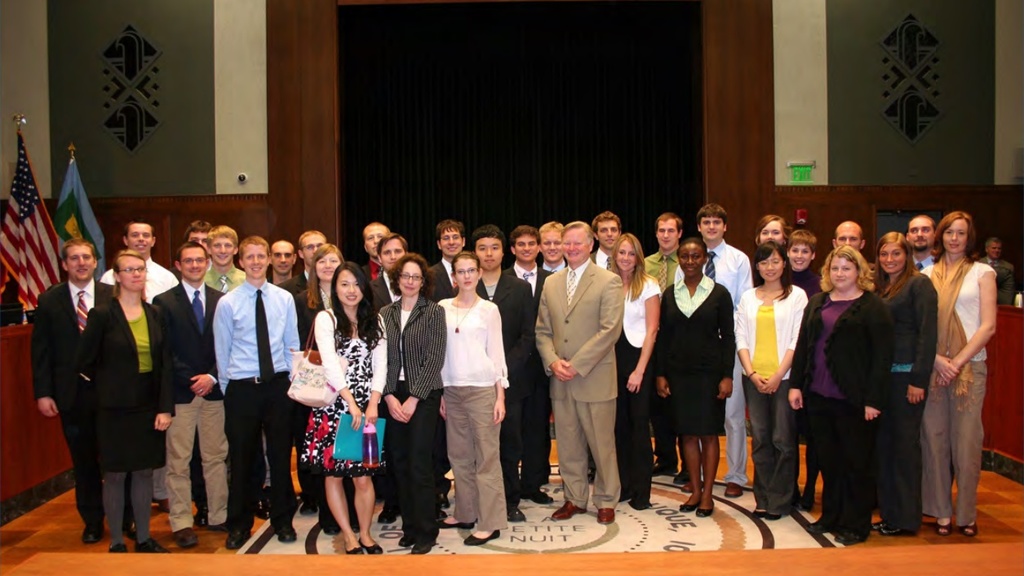
Renewable Energy Asset Map and Return on Investment and Policy Analysis
Students combined geophysical-based renewable energy capacity mapping with return on investment to evaluate how renewable energy can impact Dubuque's sustainability vision.
In order to sustain growth and demand for energy, the City of Dubuque was interested in developing policies for economic development that incorporated renewable energy.